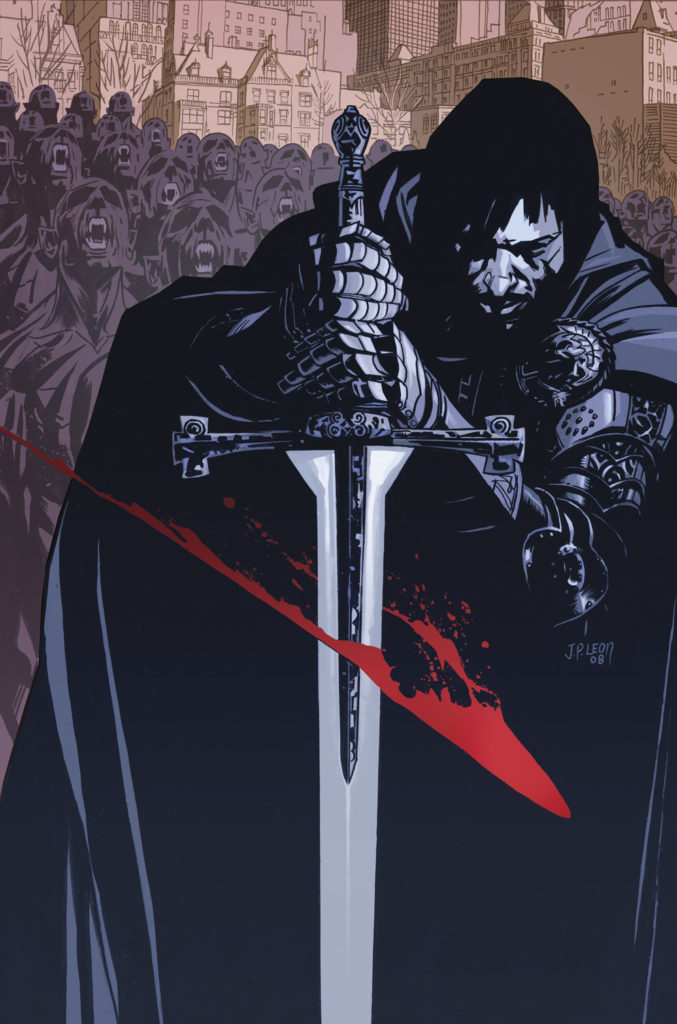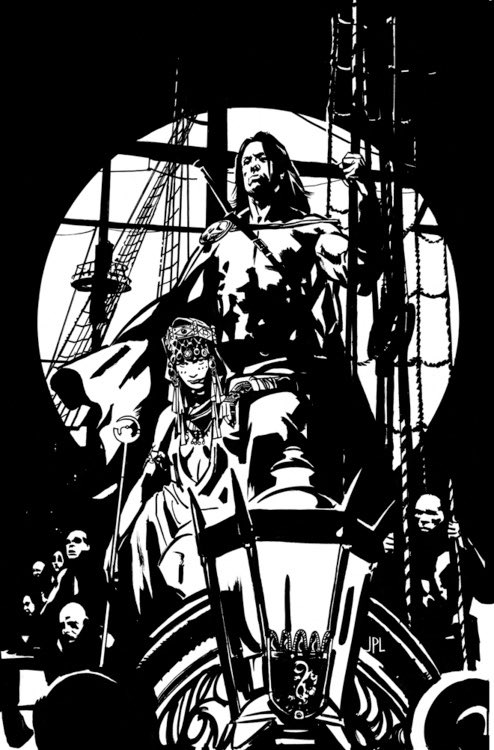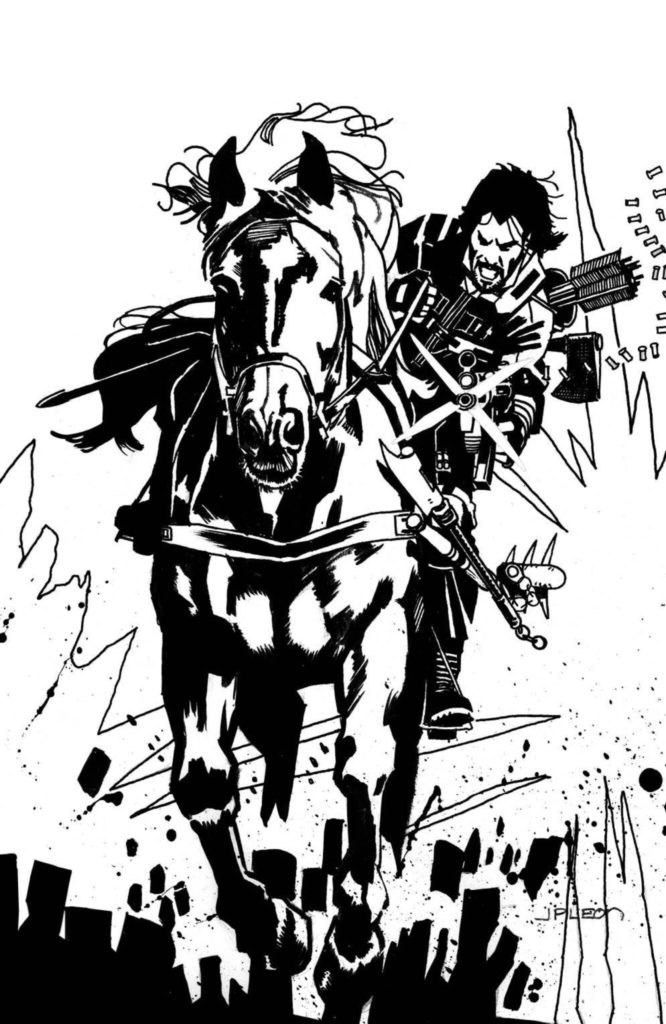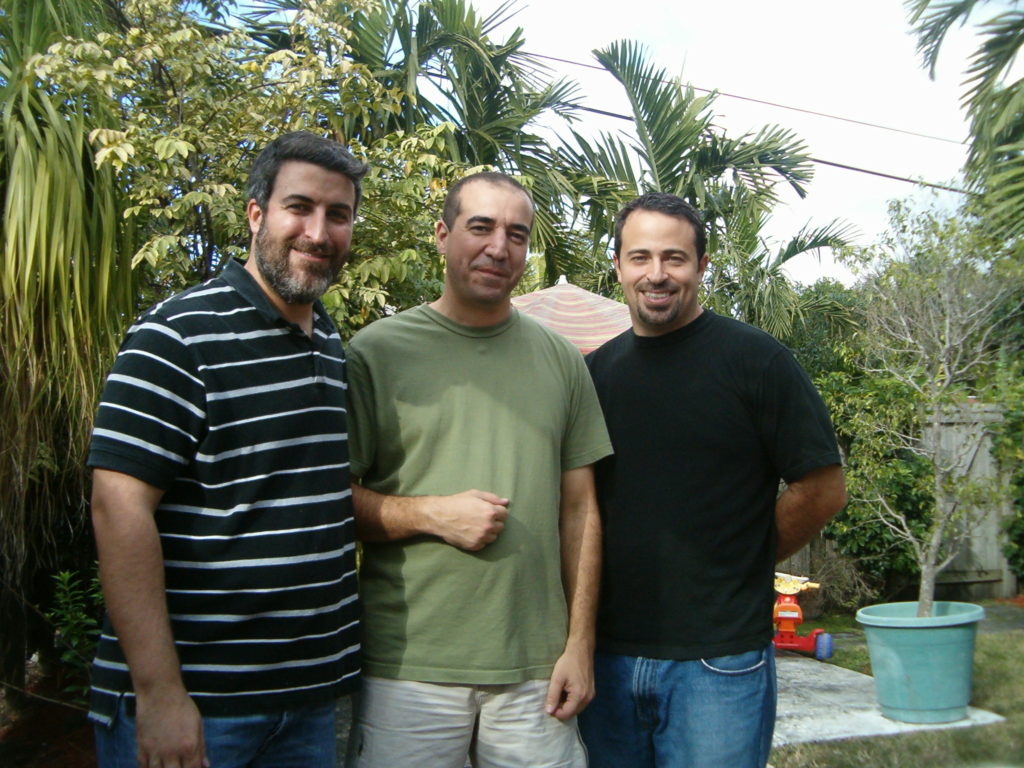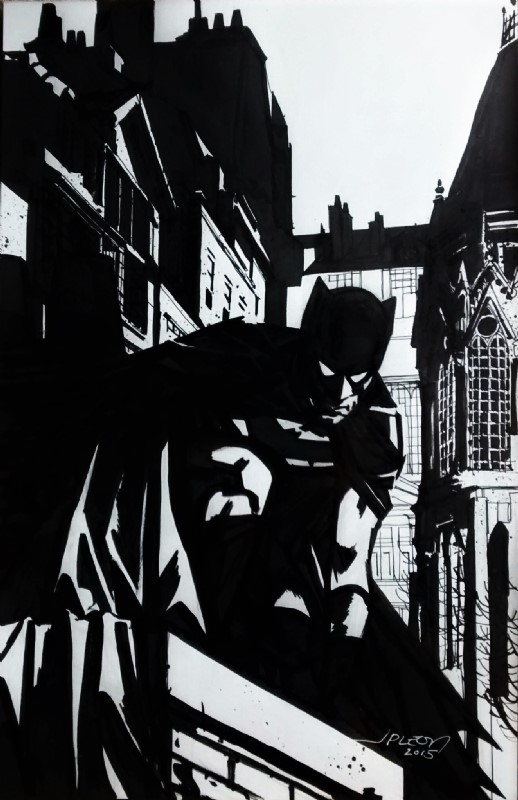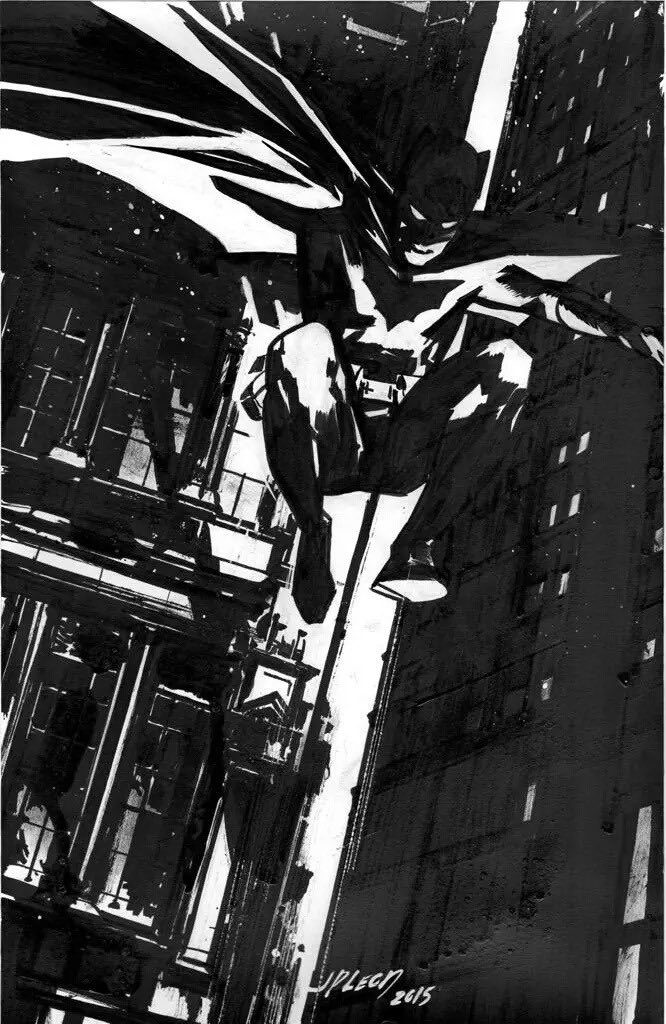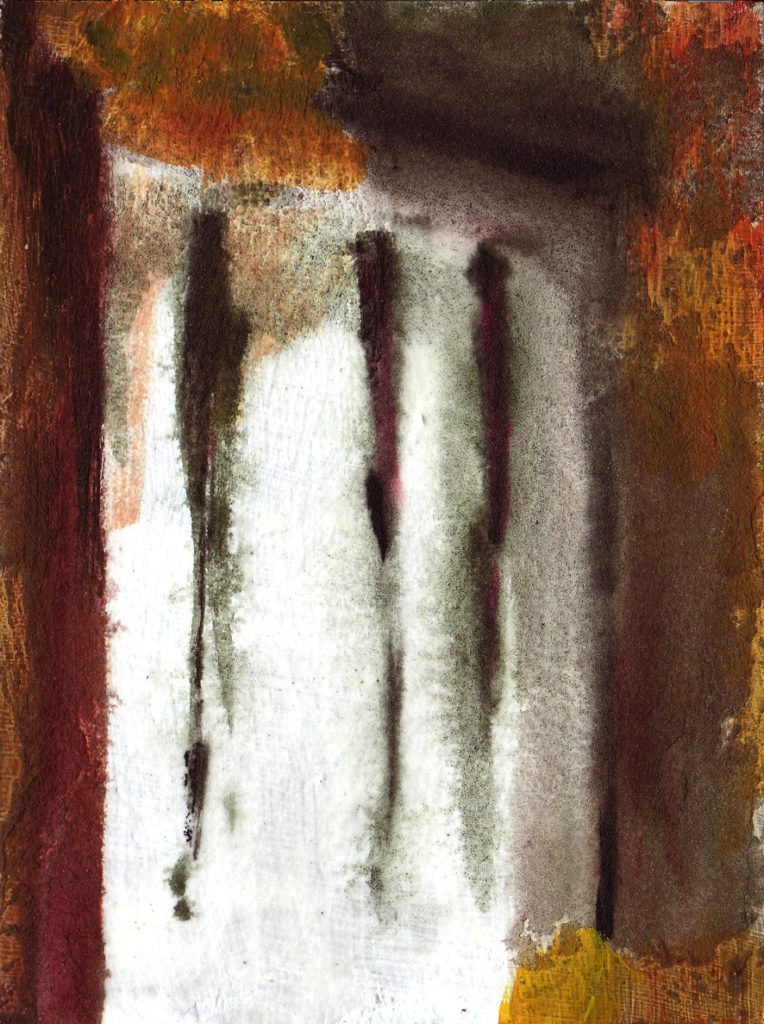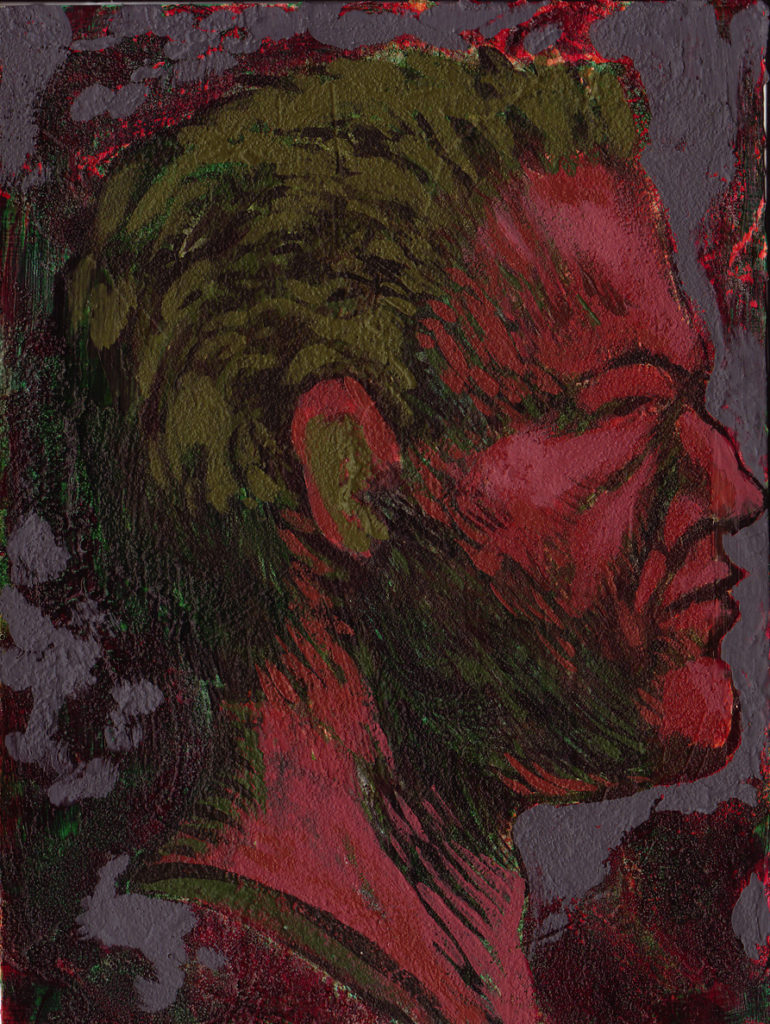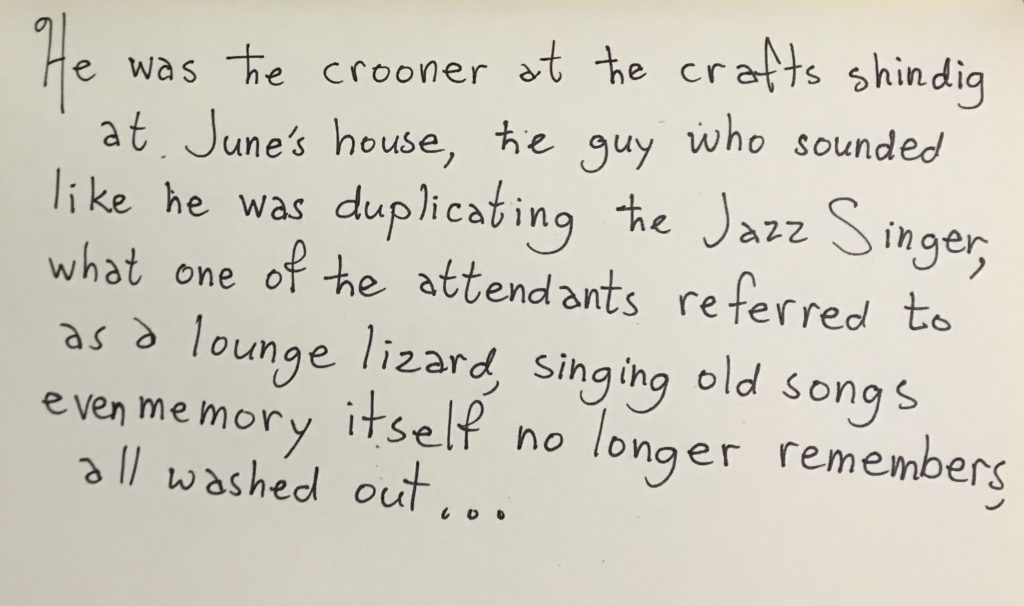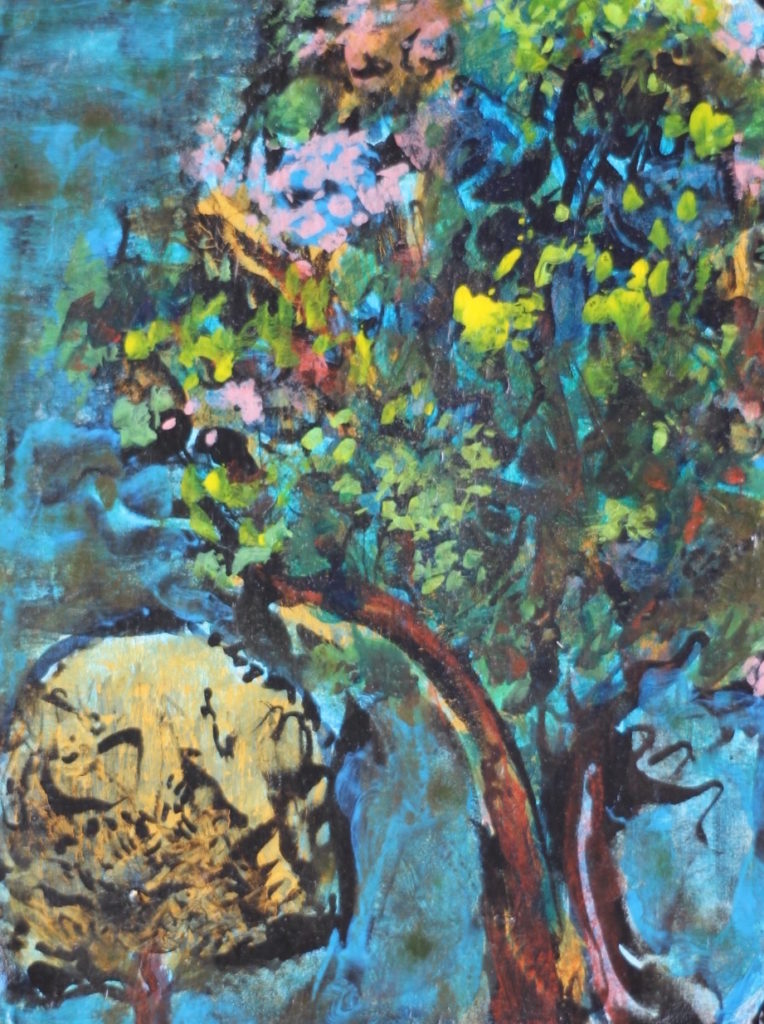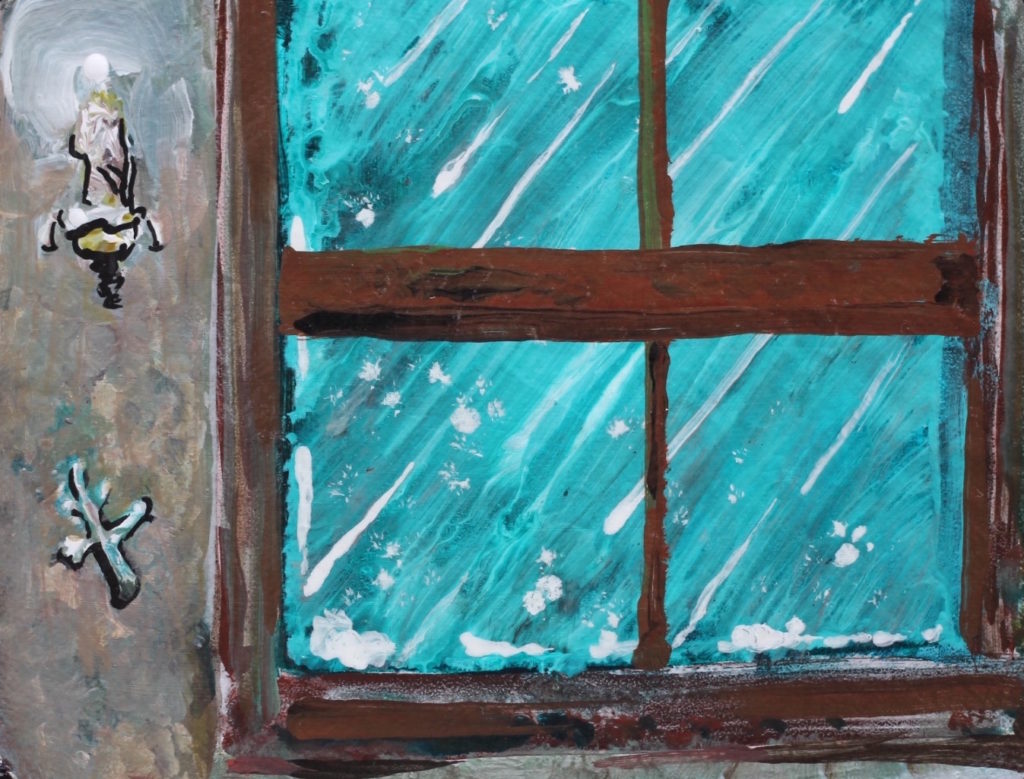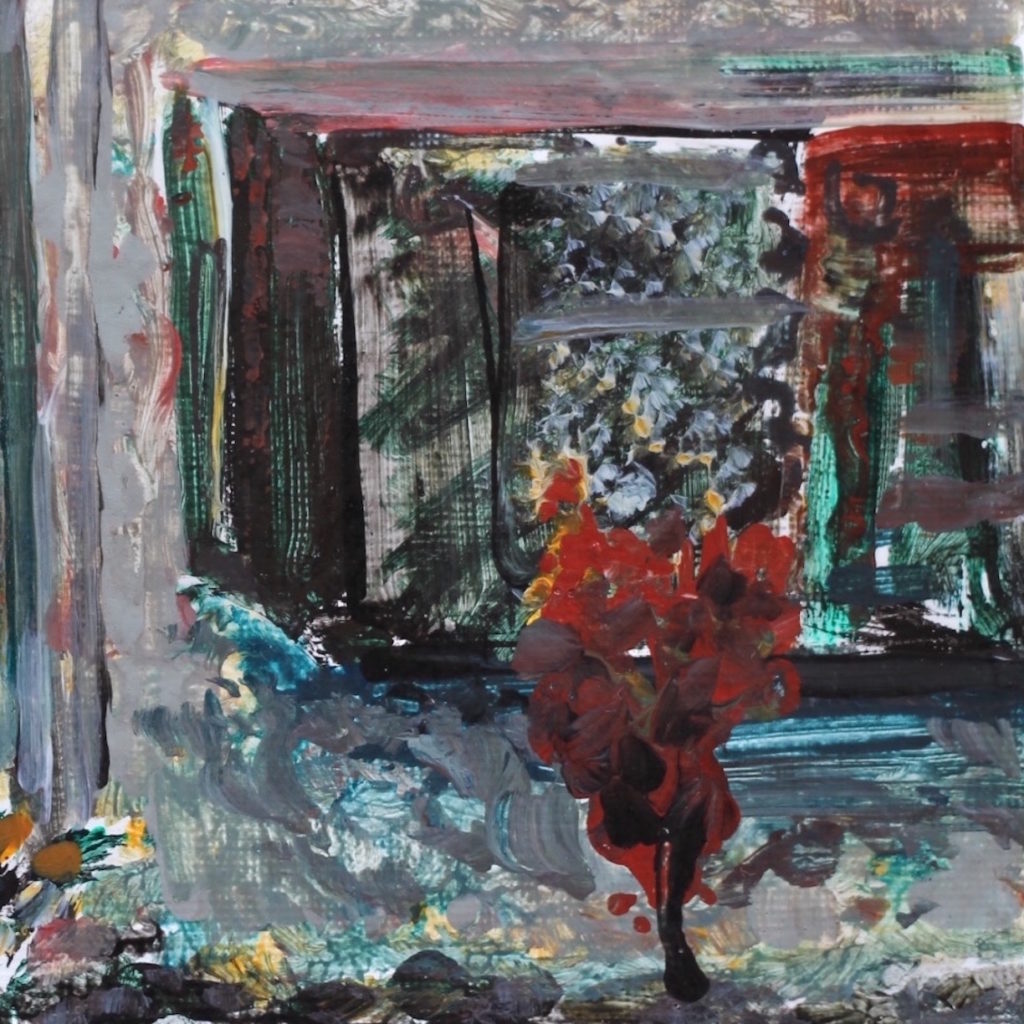Moments with John Paul Leon – Second
by Rey ArmenterosNot long after that, their mom died, and we had no words for that kind of thing. Both brothers were weathering it pretty well, but I could only imagine what was going on inside. We would go there and hang out, talk about the grittier comics coming out, and the new “graphic novels” that made everything sound more serious. This was the time of Frank Miller’s Ronin and of comics like Grimjack. We were getting into the more adult-oriented comics with the occasional nudity and the cranked up violence.
From Grimjack, JP enjoyed Timothy Truman’s art as much as I did. It was a moody patchwork of good days and bad. Not everything Truman did was good. Some of it was clumsy. But I could always forgive that because it was just too cool. There was an edge to the way he made guns and heroes that seemed to come from the badass late 1970s. Truman depicted people that were not to be screwed with. JP had the 9th issue of Grimjack before I did. We were going over that one, looking at the art and talking about what was working about it. JP and Alex always had tons of great comics.
JP’s room was peculiar, because it was like a grotto you pass before reaching the front door. It was contained inside the wall and iron gate, so it was not like it was out in the front yard. But it was a strange design to have a bedroom outside the actual house. And it had a sliding glass door, which I thought was awesome, but I now wonder what it could have done for privacy.
We’d horse around, as always, making fun of characters from old TV shows and movies, impersonating Captain Kirk. When I see Kirk perform his fighting stance, I see JP doing the same thing. The two brothers were just naturally funny.
I was always saying the stupidest things. I would act like a drunk with absolutely zero stage presence, but they would laugh anyway. There was that time when the four of us were talking about art in general, and JP or Alex were talking about Michelangelo and about how incredible an artist he was, and I was declaring that comic book artists were better. Both JP and Alex reacted, asking me if I was crazy. I shrugged and said, “Well, I like Michael Golden better than Michelangelo.”
At some point, Alex would stop hanging out as much. Now in high school, he was driving, and his priorities were dating and growing up, and soon getting a job. Their dad was a real estate agent, and eventually Alex would follow in his footsteps. He had no more time for comics or art. Alex was no longer there for the games and the good times. He was always out somewhere.
Not once did I ever talk to them about their mom and how they felt, because we were too busy pursuing our boyish interests, but I always wondered if Alex’s quest into an early adulthood were his way of coping with everything. I missed hanging out with him, but we at least still had JP.
My brother and I had moved on to other games, and we eventually started playing Middle-Earth Role Playing, which we felt was the ultimate role-playing experience, because not only were we playing in the official world of The Lord of the Rings, the game came with an elaborate set of rules to resolve critical damage on heroes and foes. One hit had the potential of annihilating anyone, which was different from AD&D, since in that game, you accumulated hit points that served as a cushion from impending death.
We introduced JP to the game, hoping to get him excited about it too. In that first adventure with him, orcs came out of a tower, and in the pell-mell that resulted, the excellent elf archer lost his hand to a scimitar swipe from an orc. These details were actually rolled on a chart that gave us the conclusions. JP was dazzled by that level of detail, but though he really liked MERP, he never did get into it, still preferring AD&D.
Around this time, JP and I came up with the idea of making a comic book together. I could never finish any of my stories when working alone, and he claimed that he couldn’t either. It may be true that JP hadn’t really finished an actual comic book story, but when Alex was still drawing, the two brothers were so prolific, they came a lot closer than I ever did. On my part, I had no discipline. They might have had more discipline, but what really drove them was the simple love for drawing.
In their work, JP and Alex didn’t just draw covers and pinups; they drew actual comic book pages. Doing the actual stories was always the hardest part. But they were so into their heroes and stories, they even drew full-page commercials about their comics that were made to show up in their other comics — like in-house ads you’d find in DC and Marvel comics. There was Criterion, which looked like a movie poster, a montage of characters at various distances, all staring at the viewer or looking forlorn. They would come up with compelling titles, sometimes for characters and stories that never went beyond those titles. I remember JP telling me of a story called “From Alpha to Omega,” and he said that he didn’t really have a clear idea about where it would go, but that was okay because a title like that could fit any story. It was always a laugh. For JP and Alex, their brand of creativity was laced with humor, and to my way of looking at things, it was uncommon. Humor was one part of creativity that I enjoyed but could not replicate.
Anyway, JP and I were set on doing a comic book together about how violent hockey was going to get in the future, where death was an expected part of the game’s entertainment. I went to his house, and we did some drawings together to get the ideas out. We were trying to determine how we were going to parcel the drawing chores. We both made examples of pencils, and then we would trade pencil drawings and each would ink over the other’s work. Hands down, JP was the better penciller, and I was the more accomplished inker, mostly because JP had not done any inking at the time. We would write the story together. It was supposed to be a three-part miniseries. We plotted the whole story, and by the end of that first day, the first issue had been scripted with everything but the dialogue. It was a project we would never continue. I don’t remember why. I think I lost interest. The thing about JP is that he was enthused about it, even if it were not his favorite thing. He would have kept going with it if I had maintained my course.
When I finally finished a 32-page comic called MoonGoddess during my first year of college, I showed it to him. He was complimentary, as always, pointing out what he liked about it. There was a moment when the strong, silent antihero said, “Death entices me,” and JP was pointing at it and repeating the quote. He liked my lettering because I was using a technical pen to make a double line for every letter stroke. All the art, I did with a brush. It was clunky work, but I have such a fond memory of it. Before that, I only ever finished an 8-page war story called “Tunnel Rat.” I knew the great difficulty of ever finishing anything in comics, because making comics was hard work. It involved wearing many hats.
Around the time I was finishing these shorter works, JP was working on Circle of Iron. This story became a 200-page epic. It was based on his AD&D characters in the World of Greyhawk, where his barbarian fighter set about to conquer that world. JP was in high school when he accomplished this incredible feat. He did what so very few of us could do, as teenagers or at any age! He actually finished something. The book clearly showed that his drawing ability had sharpened over the years. He didn’t skimp on anything. All his free time was devoted to that 200-page book. So many Saturdays could have been spent playing or going out to meet his friends. But he stayed at home to do the work. He let me borrow that incredible accomplishment in the bound photocopies that his dad had made for him, and I was engrossed with his story, carefully studying the panels. It was all done in pencil, and that belief that finishing such a large book was impossible had been debunked by JP.
